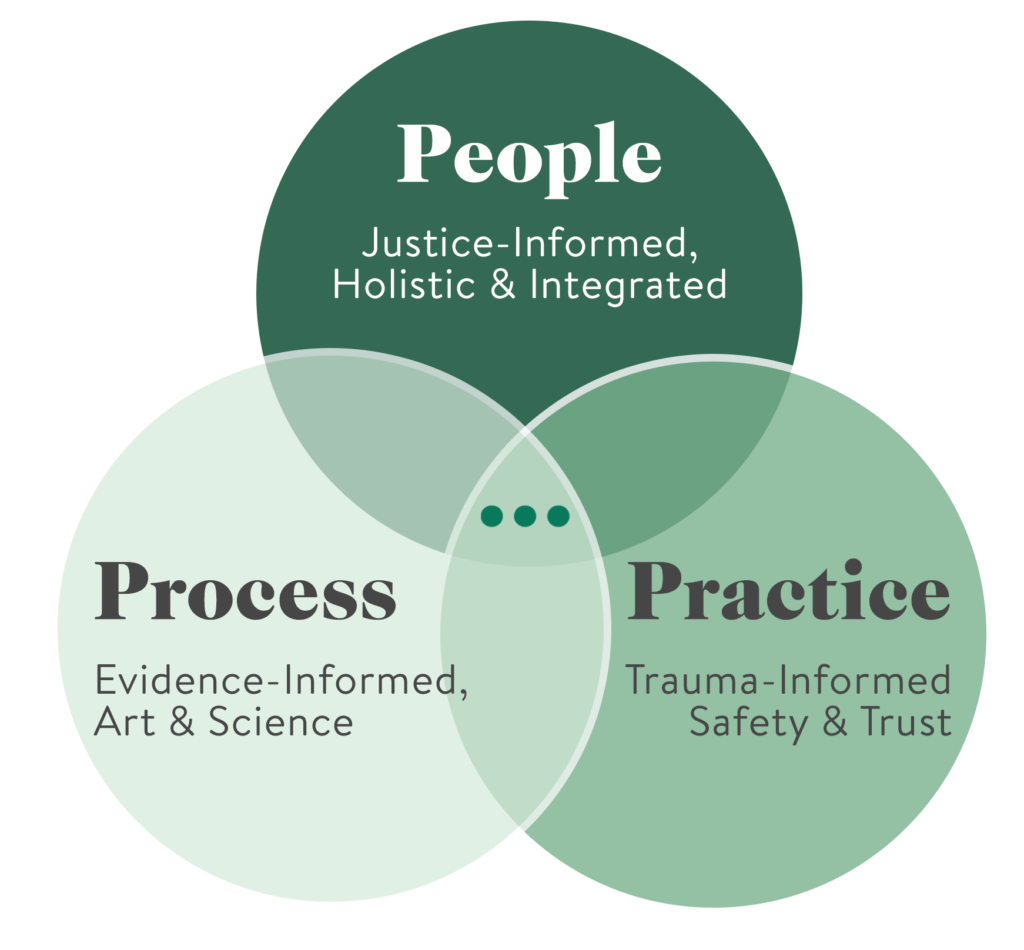
The last two years have been challenging for everyone. The stress of the dual pandemics – COVID and racial equity – and subsequent isolation, loss, and uncertainty have taken their toll and magnified the disparities that exist in our society. As a result, the importance of mental health and wellness has become top of mind for many communities and populations, including those whom we have the privilege of serving – individuals who have been formerly incarcerated.
With reincarceration disproportionally impacting Black and Hispanic communities, our participants not only experience the stigma of being formerly incarcerated, but also the stigma of seeking out and engaging in treatment for mental health disorders. This dual stigma creates barriers to seeking help and healing trauma. Fortunately, at Concordance, we have always believed in a healing first approach, meaning we recognize that mental health is essential for a person’s overall health, well-being, and success.
The majority, if not all, of our participants experience challenges with mental health disorders, substance use disorder, and/or have experienced significant trauma in their lives. Beginning with our intensive outpatient programming and continuing through full-time employment, our participants meet regularly with a licensed clinician who partners with them on their healing journey and life plan goals. We utilize a strengths-based approach grounded in holistic wellness which includes healthy coping strategies, cognitions, social activities, interpersonal relationships, and occupational balance.
Having lost my own brother to suicide, I’m passionate about mental health and advancing Concordance’s mission. As EVP, Head of Behavioral Health & Wellness, I have the honor of not only helping people like my brother but also working alongside a talented team of therapists who are committed to developing authentic, transformative relationships with the goal of improving holistic wellness for our participants. I’ve witnessed firsthand the powerful impact of kindness and empathy combined with a focus on data and a continuous improvement mindset in achieving mental health outcomes. As we recognize Mental Health Awareness Month this May, I’m reminded of how truly special Concordance is. Here are three things from my point of view that make it so:

- People – Concordance is unique in that we provide twelve essential services under one roof. Therapists work in tandem with case managers, community and peer support specialists, career educators and coaches, our chaplain, and intake team to help participants through their transition back home. This warm, non-judgmental approach delivered by highly skilled and compassionate team members allows us to provide individualized, comprehensive, and integrated care.
- Process – The Concordance Re-Entry Model was thoughtfully designed using evidence-informed practices to meet the needs of justice involved individuals. While every aspect of the model has been viewed through the lens of science, we understand the importance of art and allowing for creativity and adaptation to foster engagement, growth, and meaningful connections.
- Practice – Being able to feel safe is a critical aspect of mental health. Because our participants have high rates of exposure to traumatic events which may be compounded by experiences of trauma while incarcerated, we are intentional about creating and maintaining a trauma-informed environment that promotes safety, trust, and vulnerability.
Julie Russell is Executive Vice President and Head of Behavioral Health & Wellness at Concordance.